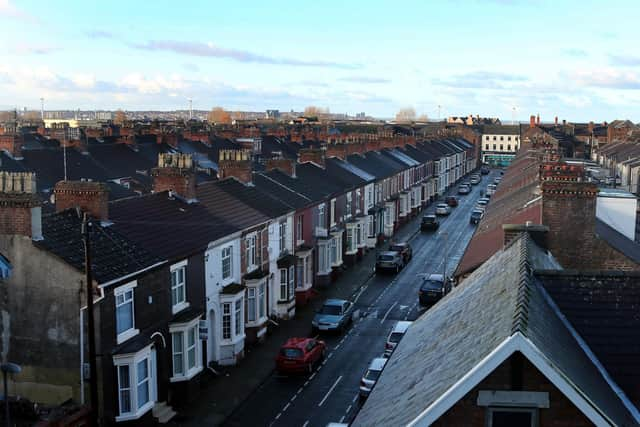A fifth of Nottinghamshire homes deemed ‘non-decent’
and live on Freeview channel 276
The Government’s English Housing Survey has revealed 3.6 million homes across the country were deemed ‘non-decent’ because they could either pose a risk to residents’ health or life, are in a bad state of repair, are cold or lack modern facilities.
The annual survey asks people at a sample of addresses about the state and quality of their housing.
Advertisement
Hide AdAdvertisement
Hide AdThe fuel poverty charity National Energy Action said lives are “being ruined by cold, damp housing”.


Department for Levelling Up, Housing and Communities figures show 19 per cent of all 124,683 occupied homes in Nottingham failed to meet the Government’s official Decent Homes Standard. The rate was higher than the average of 15 per cent across the country.
Overall, across England the proportion of private rented homes found to be in bad condition was twice as high as social housing homes, with 23 per cent compared with 11 per cent.
Matt Copeland, head of policy at NEA, said current incentives and regulation are not sufficient to get landlords to improve their properties.
Advertisement
Hide AdAdvertisement
Hide AdHe added the Government had promised to consult on increasing the minimum energy efficiency standard of private rented properties, but there has been no further development on this.
He said: “In general, action on energy efficiency has been poor for the last decade. It’s a key pillar for fighting fuel poverty and reaching our binding net zero target.
“Behind the statistics and targets are real lives being ruined by cold, damp housing.”
In Nottingham, 26 per cent of private rented homes were deemed non-decent and 13% of all social homes.
Advertisement
Hide AdAdvertisement
Hide AdAcross the country, nine per cent of all 23.9 million homes had category one hazards observed, which are the most serious hazards. The figure stood at 12 per cent in Nottingham.
David Finch, assistant director in the healthy lives directorate at the Health Foundation, said non-decent homes are putting potentially vulnerable people at significant risk of health problems.
He said: “A decent home is one of the building blocks for living a healthy life, but safety hazards in the home can lead to injury or harm.
“Damp homes can affect respiratory health, leading to asthma, coughing, and wheezing, with cold homes also linked to higher winter deaths.”
Advertisement
Hide AdAdvertisement
Hide AdHe added progress in improving the quality of homes has stalled and that the existing Decent Homes Standard is increasingly outdated.
The English Housing Survey has also found 24 per cent of dwellings built before 1919 contained serious hazards and failed to meet the standards.
A DLUHC spokesperson said: “Our landmark Renters Reform Bill is progressing through Parliament. The Bill will deliver a fairer private rented sector for both responsible tenants and good faith landlords.
“Everyone has the right to a warm, secure and decent home, and we expect landlords to meet our energy efficiency standards before letting properties.
Advertisement
Hide AdAdvertisement
Hide Ad“We are introducing a Decent Homes Standard in the private rented sector for the first time and also bringing in the Social Housing (Regulation) Act, which will deliver significant changes across the sector to ensure landlords are held to account for their performance.”